

FOKKER 70 AIRFRAME SYSTEMS (ATA 20-50) MODIFICATIONS (30)
LED Sealed Beam Replacement Lamps for Part 25 aircraft


LED Sealed Beam Replacement Lamps from Talon
Get Light-Years ahead of your competition!
Talon Aerospace sealed beam replacement lamps are designed to allow for plug and play replacement of the existing sealed beam lamps fitted on an aircraft. Talon has 3 sizes available, with replacements for the Par 64 landing, Par 46 taxi and Par 36 logo, runway turn-off, engine and wing scan applications. The existing sealed beam lamps have a design life span between 25 and 300 hours while the Talon LED replacements are designed for 20,000 in service hours.
Light output is comparable to OEM lamps and the Par 64 landing light and Par 46 taxi light are designed to meet Mil Spec standard MIL-L-6503H. The LED replacements work with the existing transformers on the aircraft and are designed to minimize the overall LRU count within an operator inventory. The LED replacement lamps are designed with cool white LEDs to maximize light output but the Par 36 logo is also made available in warm white. Par 36 LED replacement lamps operate on both 13V and 26V AC, while the Par 46 and 64 operate on 26 VAC. All lamps can also operate on 28VDC, allowing for rotorcraft applications.
Talon LED sealed beam are designed at comparable weight to existing sealed beam lamps of equal size, allowing them to be used in existing fixtures. The current draw for the LED lamp is significantly lower compared to the existing units. Landing light Q4559X draws 650W while Talon LED replacement TAE0728-1 draws only 104W.
The LED replacement lamps are fully repairable and operator can replace individual components like the LED board, power supply and lens in case of failures, reducing cost of ownership.
Talon and Proponent
Proponent is the exclusive global distributor of all Talon Aerospace products. This relation provides customers with the latest generation of LED lights.
Proponent
Proponent is the new identity representing Kapco Global and Avio-Diepen as one united company, and the unique capabilities that the new organization brings to the aerospace market. With extensive experience in supporting the MRO, OEM and airline markets, our organization offers innovative inventory and supply chain management solutions to OEM and aftermarket customers.
Replace Halon by non-Halon fire extinguisher units
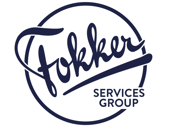


New european rule making will be come applicable:
•EASA HalonGuide Nov 2019
•EU: Regulation (EC) No 1005/2009
•EU: Commission Regulation (EU) No 2017/605
and will prohibit the use of Halon filled units per 1 Jan 2026.
Traffic Alert and Collision Avoidance System (TCAS) 7.1



The Traffic alert and Collision Avoidance System (TCAS) is introduced to reduce the risk of mid-air collisions or near mid-air collisions between aircraft. When TCAS II version 7.1 is implemented the probability of mid-air collisions will be reduced significantly. *
The introduction of TCAS change 7.1 software is available for Fokker 50 (SBF50-34-072), Fokker 70 and Fokker 100 A(sbf100-34-105/110) as well as for other types of aircraft like Airbus A318, A319, A320, A321, Boeing 737 series, 757, 767, Bombardier Dash 8 and CRJ. CERTIFICATIONS | Fokker Services Group | Fokker Services Group
Systems from several major vendors are covered in these STS's.
Fokker Services in/near seat power supply USB ports

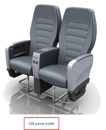
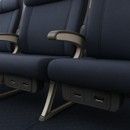
As a result of passengers bringing their own PED's, there is an increased need to charge these PED's.
Fokker Services has introduced an in-seat power supply system that will allow the passenger to charge their PED's, based on the universally used USB standard with max 2.1 amps. We can support different aircraft types.
Validated Decompression Analysis with DECOM7 Tool


Overview
The DECOM7 Decompression Analysis Tool by Fokker Services Group enables decompression analysis for supported aircraft types. The analysis can be performed for these aircraft types in in their baseline (pre-mod) configuration without any customer input, but also for any post-mod configuration (based on customer input ) for e.g. VIP conversions or special mission adaptations.
DECOM7 can perform the decompression analysis for any flight level and typical scenarios, such as windshield loss, engine non-containment, H0-hole etc. in order to show compliance with JAR/FAR/CS 25.365 (e)(f)(g).
Integrated GNSS solution



Required Navigation Performance (RNP) is a new approach to navigation increasing the profitability, safety of aviation worldwide. RNP operation is mainly based on GPS (generic term: GNSS) technology, rather than groundbased radio navigation aids. RNP capable aircraft fly precise, predetermined paths loaded into their Flight Management Computer (FMC). On-boardperformance monitoring and alerting, a key feature of RNP, alerts the flight crew if their position becomes uncertain. RNP brings improved aircraft-track-keeping-performance in all flight phases, facilitating newroutes, access to new (remote)airports, environmentally beneficial arrival and departure procedures, optimised approach routing, allowing for shorter approaches and lower decision altitudes. Using the GNSS solution of Fokker Services can save your organization time and fuel and thereby reduce operating costs.
AED Philips Heartstart FRx 861304/Heartsine Samaritan PAD 350


Automatic External Defibrillators (AED) in Aviation Use
Automatic External Defibrillators (AEDs) are becoming increasingly common in daily life. Recognized national health authorities in several countries now recommend the use of AEDs in public and private environments, including aviation.
As a result, operators are being advised by these health institutes to install AED equipment on board aircraft.
To support this initiative, AMC1 CAT.IDE.A.220(b)(4) has been issued, providing additional guidance. This is further explained in EASA FAQ No. 19169, available at: https://www.easa.europa.eu/faq/19169
While AED units are widely certified for civil (non-aviation) use, demonstrating compliance with DOA 160 standards for aerospace applications can sometimes be challenging.
Fokker Services has successfully conducted EMC (Electromagnetic Compatibility) verification testing for the following aircraft types:
-
Fokker 50
-
Fokker 70/100
-
Embraer 170/190
-
De Havilland Dash-8
The testing was performed using the following commercially available AED models:
-
Philips HeartStart FRx (861304)
www.medical.philips.com -
Heartsine Samaritan PAD 350
www.heartsine.com
Solid-State Recorders (SSCVR and SSFDR) and ULB/RIPS

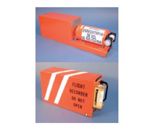
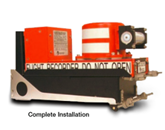
Enhanced Flight Data Recorder /Cockpit Voice Recorder Systems for Improved Compliance and Reliability
Several aviation authorities have mandated—or are in the process of mandating—the use of Solid-State Recorders and Underwater Locator Beacons (ULBs) with increased performance requirements.
Key regulatory milestones include:
-
By 2018: All flight recorder-mounted ULBs must have a minimum 90-day transmission duration.
-
By 2019: All flight recorders are expected to be solid-state types with a minimum recording duration of 120 minutes.
-
Post-ED112 requirements: Flight recorders must be capable of storing 20 to 25 hours of data.
In response to both regulatory changes and operational needs, Fokker Services introduces a new generation of Solid-State Flight Data Recorders (FDRs), Cockpit Voice Recorders (CVRs), and ULBs for integration across your fleet. These units offer significant advantages over traditional tape-based systems, including:
-
Improved technical dispatch reliability
-
Reduced maintenance costs
-
Increased system performance and recording integrity
To further enhance survivability and regulatory compliance, Recorder Independent Power Supply (RIPS) units can also be offered, either as add-on modules or integrated solutions.
Operation on low strength airfield


Introduction of Variable Inflation Pressure for Main Landing Gear Tires
To support operations from airfields with low pavement strength (Aircraft Classification Number – ACN ~20), Fokker Services has introduced a variable inflation pressure capability for the tires on the Menasco (currently Goodrich) Main Landing Gear (MLG) of F28 and Mk0070 aircraft.
This modification is detailed in Service Bulletin SBF100-32-165.
Note: The ACN methodology has been replaced by the Aircraft Classification Rating (ACR) system. Relevant performance and compatibility data can be found in Report TE-2822 in additional to the ACAP (Aircraft Classification and Airport Planning) manual.
This enhancement allows operators greater flexibility in deploying aircraft to airports with limited pavement load capacity, without compromising safety or structural integrity.
SaftGlo® Emergency Floorpath Evacuation Systems


This new type of Emergency Floorpath Evacuation System for your fleet of aircraft is one of the best modifications to gain direct pay-back in maintenance costs. The system will fi t any cabin lay-out and it is easy to install and adapt to any type of carpet décor. Based on Photo Luminescent (PL) technology, which absorbs and re-radiates light, the light storing process can be repeated infinitely.


